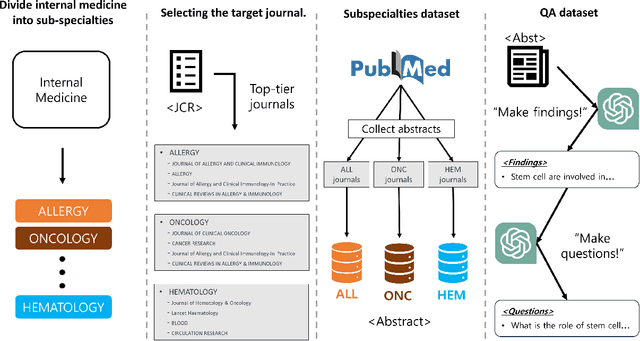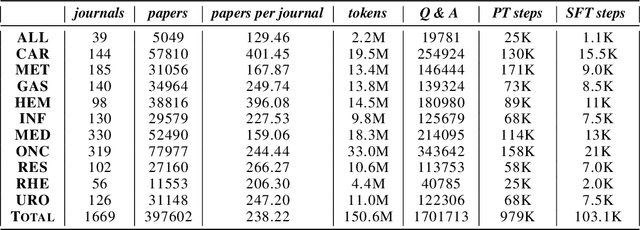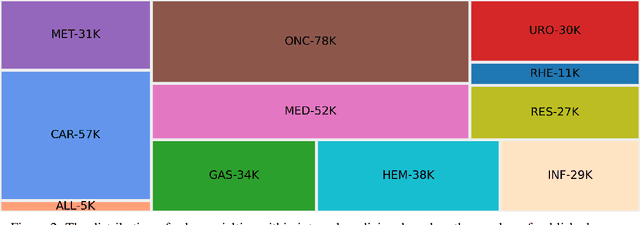Byeolhee Kim
Department of Information Medicine, Asan Medical Center, Seoul, Republic of Korea
Quality-Aware Translation Tagging in Multilingual RAG system
Oct 27, 2025Abstract:Multilingual Retrieval-Augmented Generation (mRAG) often retrieves English documents and translates them into the query language for low-resource settings. However, poor translation quality degrades response generation performance. Existing approaches either assume sufficient translation quality or utilize the rewriting method, which introduces factual distortion and hallucinations. To mitigate these problems, we propose Quality-Aware Translation Tagging in mRAG (QTT-RAG), which explicitly evaluates translation quality along three dimensions-semantic equivalence, grammatical accuracy, and naturalness&fluency-and attach these scores as metadata without altering the original content. We evaluate QTT-RAG against CrossRAG and DKM-RAG as baselines in two open-domain QA benchmarks (XORQA, MKQA) using six instruction-tuned LLMs ranging from 2.4B to 14B parameters, covering two low-resource languages (Korean and Finnish) and one high-resource language (Chinese). QTT-RAG outperforms the baselines by preserving factual integrity while enabling generator models to make informed decisions based on translation reliability. This approach allows for effective usage of cross-lingual documents in low-resource settings with limited native language documents, offering a practical and robust solution across multilingual domains.
Mitigating Adversarial Attacks in LLMs through Defensive Suffix Generation
Dec 18, 2024Abstract:Large language models (LLMs) have exhibited outstanding performance in natural language processing tasks. However, these models remain susceptible to adversarial attacks in which slight input perturbations can lead to harmful or misleading outputs. A gradient-based defensive suffix generation algorithm is designed to bolster the robustness of LLMs. By appending carefully optimized defensive suffixes to input prompts, the algorithm mitigates adversarial influences while preserving the models' utility. To enhance adversarial understanding, a novel total loss function ($L_{\text{total}}$) combining defensive loss ($L_{\text{def}}$) and adversarial loss ($L_{\text{adv}}$) generates defensive suffixes more effectively. Experimental evaluations conducted on open-source LLMs such as Gemma-7B, mistral-7B, Llama2-7B, and Llama2-13B show that the proposed method reduces attack success rates (ASR) by an average of 11\% compared to models without defensive suffixes. Additionally, the perplexity score of Gemma-7B decreased from 6.57 to 3.93 when applying the defensive suffix generated by openELM-270M. Furthermore, TruthfulQA evaluations demonstrate consistent improvements with Truthfulness scores increasing by up to 10\% across tested configurations. This approach significantly enhances the security of LLMs in critical applications without requiring extensive retraining.
Enhancing Clinical Efficiency through LLM: Discharge Note Generation for Cardiac Patients
Apr 08, 2024Abstract:Medical documentation, including discharge notes, is crucial for ensuring patient care quality, continuity, and effective medical communication. However, the manual creation of these documents is not only time-consuming but also prone to inconsistencies and potential errors. The automation of this documentation process using artificial intelligence (AI) represents a promising area of innovation in healthcare. This study directly addresses the inefficiencies and inaccuracies in creating discharge notes manually, particularly for cardiac patients, by employing AI techniques, specifically large language model (LLM). Utilizing a substantial dataset from a cardiology center, encompassing wide-ranging medical records and physician assessments, our research evaluates the capability of LLM to enhance the documentation process. Among the various models assessed, Mistral-7B distinguished itself by accurately generating discharge notes that significantly improve both documentation efficiency and the continuity of care for patients. These notes underwent rigorous qualitative evaluation by medical expert, receiving high marks for their clinical relevance, completeness, readability, and contribution to informed decision-making and care planning. Coupled with quantitative analyses, these results confirm Mistral-7B's efficacy in distilling complex medical information into concise, coherent summaries. Overall, our findings illuminate the considerable promise of specialized LLM, such as Mistral-7B, in refining healthcare documentation workflows and advancing patient care. This study lays the groundwork for further integrating advanced AI technologies in healthcare, demonstrating their potential to revolutionize patient documentation and support better care outcomes.
InMD-X: Large Language Models for Internal Medicine Doctors
Feb 20, 2024



Abstract:In this paper, we introduce InMD-X, a collection of multiple large language models specifically designed to cater to the unique characteristics and demands of Internal Medicine Doctors (IMD). InMD-X represents a groundbreaking development in natural language processing, offering a suite of language models fine-tuned for various aspects of the internal medicine field. These models encompass a wide range of medical sub-specialties, enabling IMDs to perform more efficient and accurate research, diagnosis, and documentation. InMD-X's versatility and adaptability make it a valuable tool for improving the healthcare industry, enhancing communication between healthcare professionals, and advancing medical research. Each model within InMD-X is meticulously tailored to address specific challenges faced by IMDs, ensuring the highest level of precision and comprehensiveness in clinical text analysis and decision support. This paper provides an overview of the design, development, and evaluation of InMD-X, showcasing its potential to revolutionize the way internal medicine practitioners interact with medical data and information. We present results from extensive testing, demonstrating the effectiveness and practical utility of InMD-X in real-world medical scenarios.
 Add to Chrome
Add to Chrome Add to Firefox
Add to Firefox Add to Edge
Add to Edge